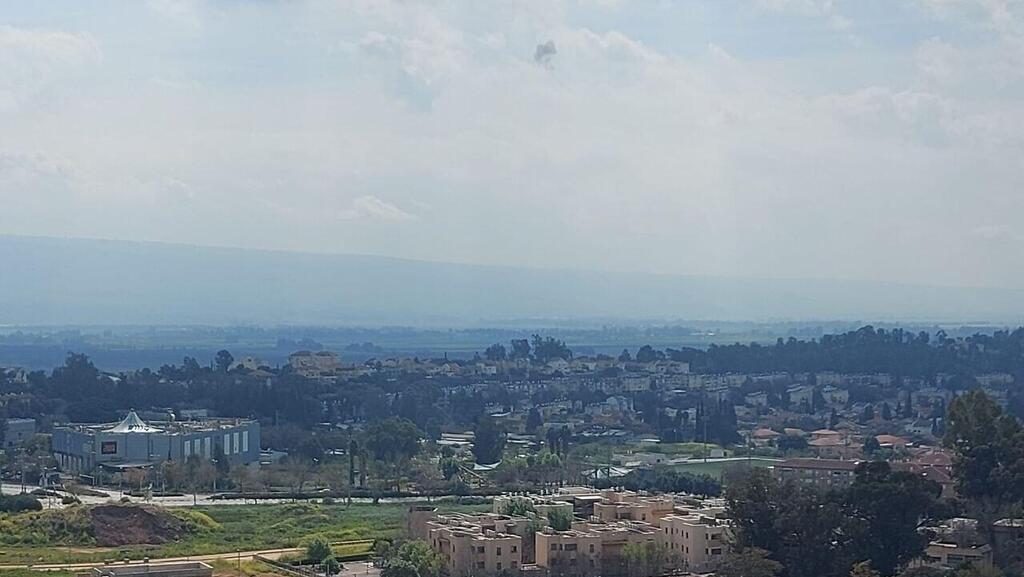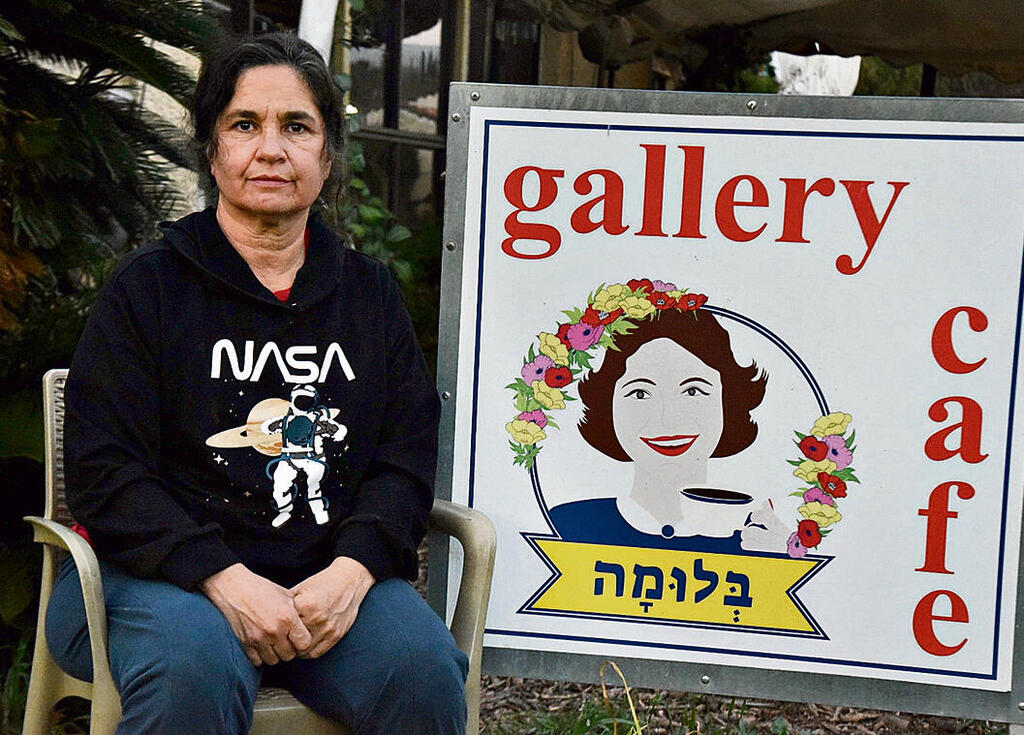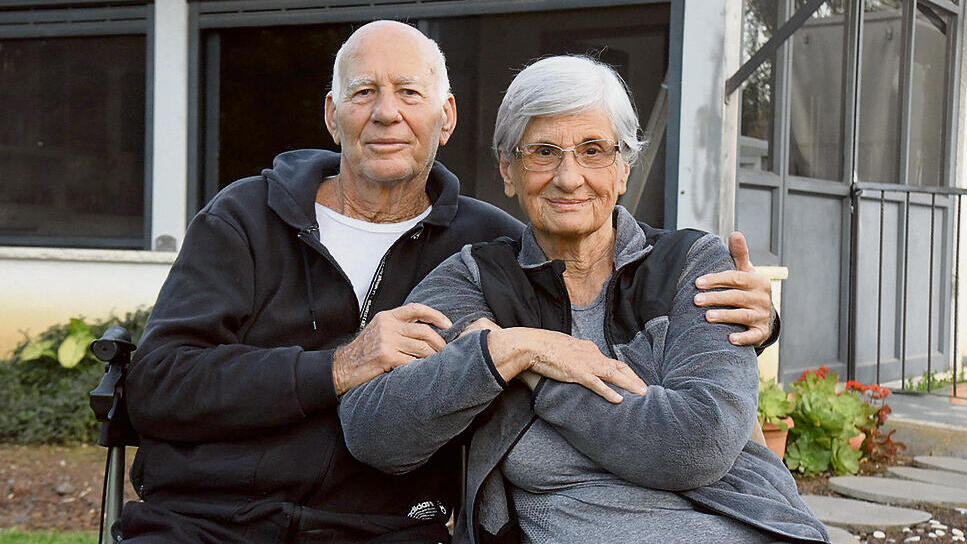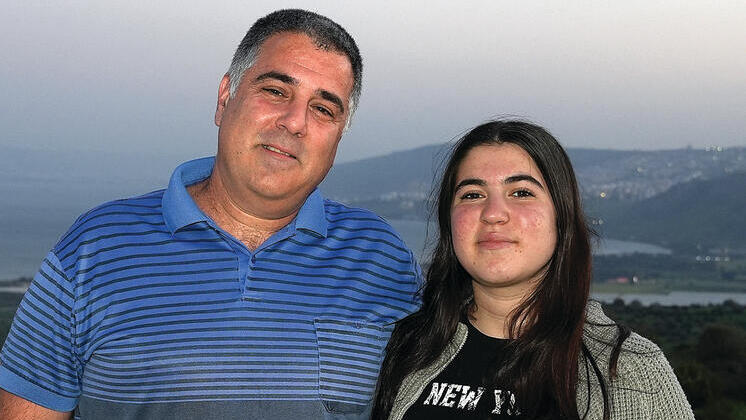One question has become taboo in Galilee communities close to the Lebanon border, those that haven’t been evacuated, and it's "How are things going?" The question is now too painful for residents to contemplate.
More stories:
"Everyone’s depressed, it's a horrible situation," said Rachel Dayan, owner of the Bluma café in Kibbutz Kfar Blum, situated about four miles from Lebanon.
Rocket sirens went off in the community on Thursday during school hours. Residents were later informed that a missile had landed in an open field, though it was intercepted by the IDF.
At Kfar Blum’s high school, parents were informed before the army's statement, because the siren sounded while the students were in the schoolyard during a break, and were directed to shelters.
Dayan said on Wednesday, "We live in the time between missiles and wait for something good to happen, but no one knows what will happen next and when," She opens her café six days a week, for only four hours each time. "It's mainly for the sake of our local community and IDF soldiers in the area who see it as a place of comfort and normalcy," she explained.
Dayan was supposed to celebrate the cooperative business’ sixth anniversary, but as mentioned, there’s now no reason for celebration. "Before the war, I had 20 employees hired, and now only I and my husband who joined me remain," Dayan said.
She makes fresh bread and baguettes, salads, and sandwiches, and savory and sweet pastries every day. "Profits are very low, we mainly open for the community’s sake, I also see it as a mission," she said.
'What's being done to end this nightmare?'
Over 60,000 residents of the Galilee area were uprooted from their homes in October and found themselves living new lives in hundreds of towns across the country. Communities disbanded, workplaces closed, and families were scattered throughout Israel. About 60% of Kfar Blum’s residents, who weren’t evacuated by the government and IDF’s decision, evacuated on their own. Most of them have no proper safe rooms.
"I want to understand what's being done to end this nightmare?" Dayan asked. "Last week there was a serious missile attack here, with dozens of interceptions. We thought it was the start of a major Hezbollah attack, and then woke up in the morning and continued as usual as if nothing happened."
The Gordon family lives close to the Bluma cafe. Rivka and her husband Ziv are both almost 82, and last week, a missile landed in their backyard. Luckily, it didn't explode. "I went pray at the kibbutz’s synagogue, we were very lucky that the rocket didn't explode and didn't hit the house," Ziv said.
His wife Rivka recalled the incident, "I'm not a coward, and neither is my husband, but this time the house shook, and I jumped in panic. They removed the missile, a metal pipe about 1.5 meters long, from the yard. We've never felt like this before. We're already getting old, and my husband needs constant care, it's not easy for us to run to a public shelter. Our safe room is from the 1980s, and isn’t up to standard. This reality isn’t normal."
The Gordon couple feel that no one in the government is willing to meet them, or the hundreds of thousands of Galilee residents living in war, to talk and update them on the situation. "I don't think they understand what our lives are like here," Ziv said.
"They forgot about us, and it seems like the state has already gotten used to us living like this. The kibbutz’s economy has completely frozen, and the kibbutz hotel is closed. No one knows where this is heading."
A feeling of helplessness surrounds residents of Galilee, who never imagined this reality would last for over five months. Tens of thousands of children in schools and high schools have already been absorbed into hundreds of schools across Israel and temporary schools set up for them, but thousands more don’t have the chance to sit with their teachers like their peers who don't live near active combat zones.
"The government is making tremendous efforts, but doesn’t understand this issue requires a long-term solution," said Omri Lerner from Kahal, situated near the northern border. Lerner has two daughters who study at the Emek HaHula High School in Kfar Blum.
Some 1,200 students studied there until October 7, and since then, about half of them have been scattered across the country. The rest, who live in Galilee communities that haven't evacuated their residents, study in shifts at other elementary schools.
"My daughters study in elementary school classrooms, after the students there finish their daily studies, without laboratories and facilities adapted for high school students," Lerner explained. "Until this week, they only studied a third of their required weekly hours, and now study less than half of it. Out of the 15 subjects a 10th-grade student is supposed to study, she studies only five."
Inbar, Omri’s daughter, explained how she sees her unsettling reality. "It's amazing to think that everything is normal for other kids my age in Israel, while we’re living in a mad state," she said. "My friends from central Israel are busy with life, and I feel stuck on October 7. I haven't felt like I've been learning at all since then.
“We had a rocket siren sound today at school, and all I could think about in the shelter was ‘How can I study like this.’ I've already lost half a year that won't return. This was supposed to be a year full of dreams, where I study for my matriculation exams and start learning to how to drive and work – when everything stopped. We need to hear some good news already."
Her father, Omri, hopes the government will take responsibility for their situation. He argues that hope things will return to normal in September doesn’t constitute a working plan. "I'm not a military analyst and I don't know what will happen, but decisions need to be made," he said. "I don't see a way for the high school in Kfar Blum to return to working full-time next year. But I don't think anyone has the right not to prepare for it.
“In the first two months, everyone assumed this was a short war and things would go back to normal soon, no one looked for long-term solutions. Since then, they've added a small number of teaching hours and a few more teachers. Things here require a long-term solution. There are seven more high schools with a similar problem, and dozens of elementary schools in the same situation. Temporary full-time study frameworks need to be established in safe areas. You can't study in a place where endless sirens sound all the time."







